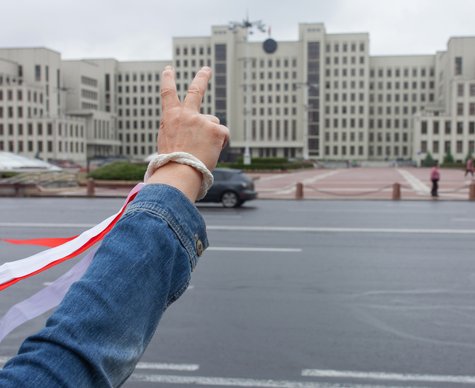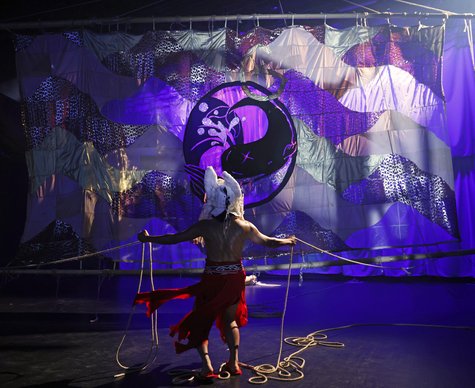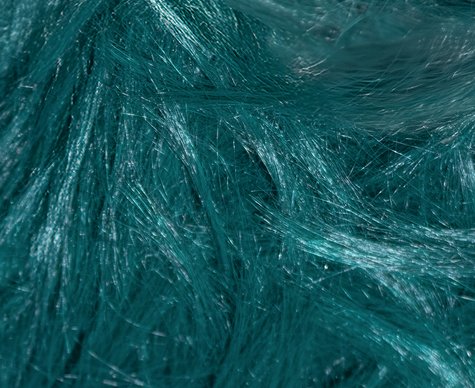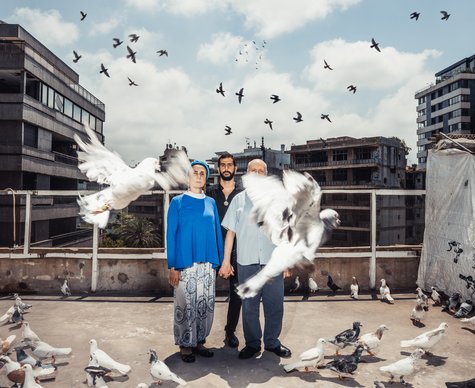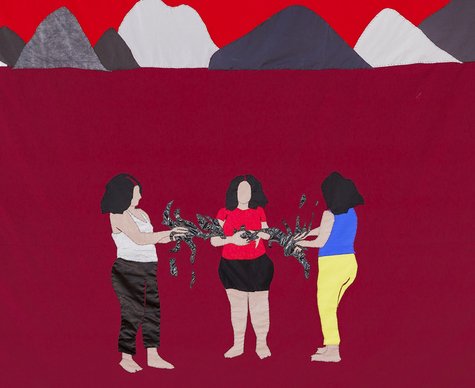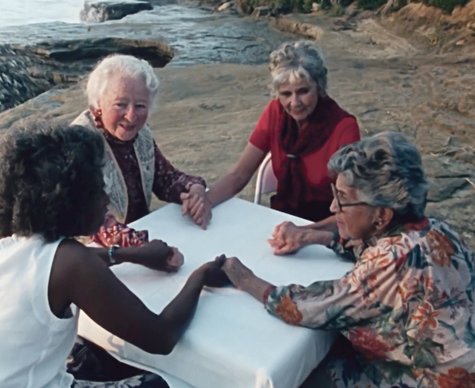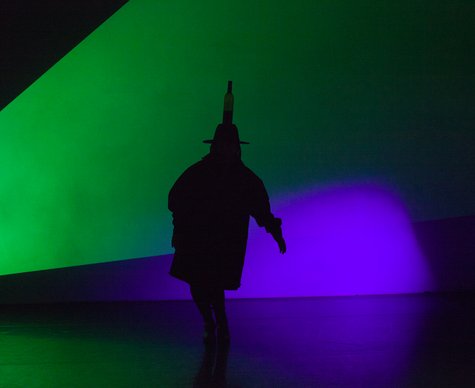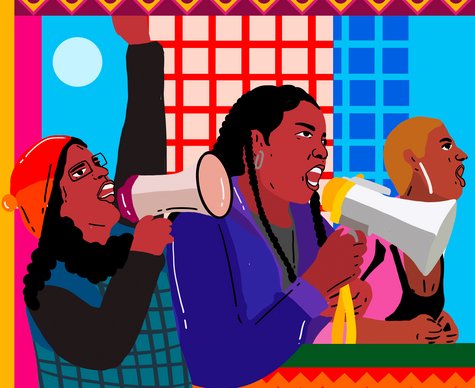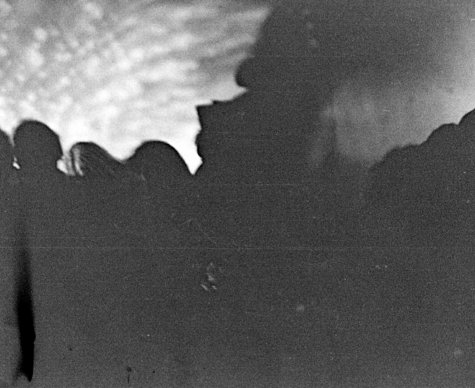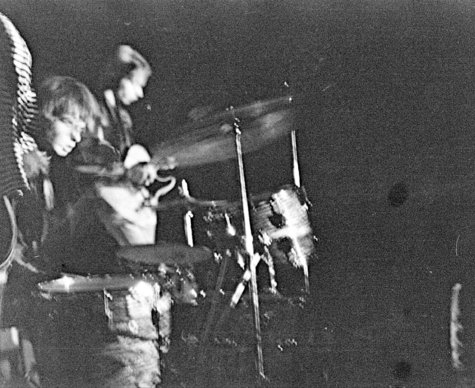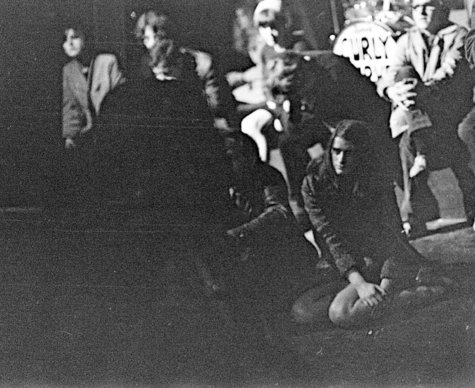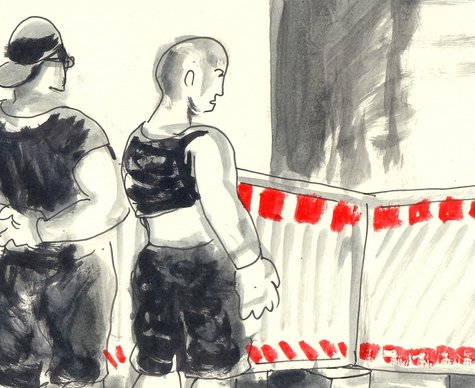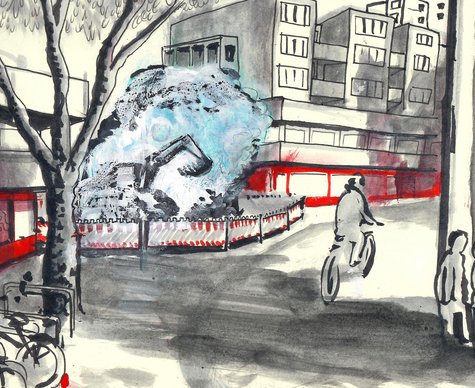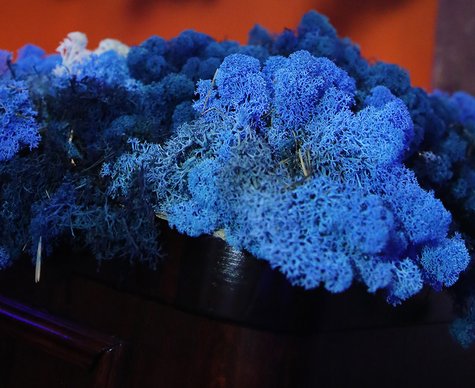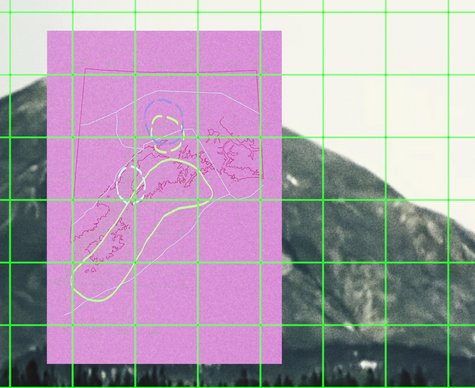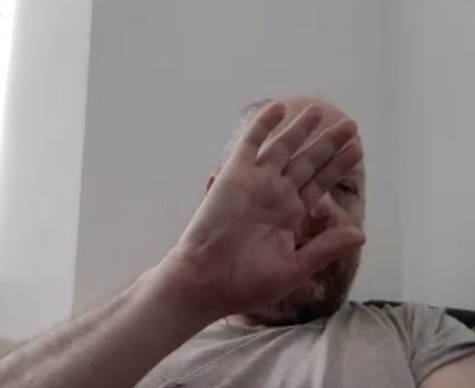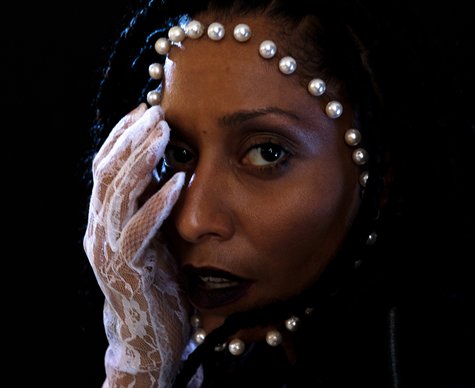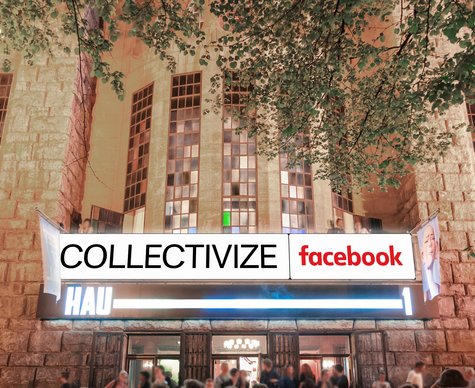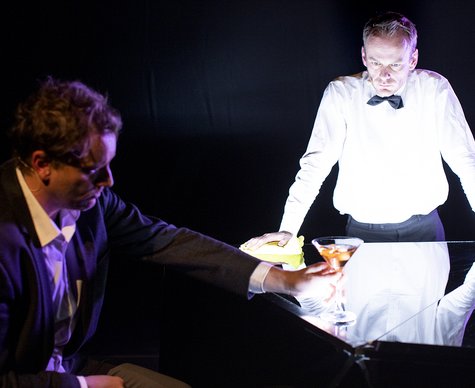Standard Deviation x Remote Control pres. “RIDNE” | Diana Azzuz & Nazanin Noori | Katarina Gryvul & Alex Guevara
- Film
- Music

Despite nearly a year of Russia’s brutal full-scale war of aggression on Ukraine, months of protests in Iran, and a decade of civil war in Syria, war and the systematic suppression of personal freedoms remain largely abstract concepts for many people in Germany and Western Europe, which in turn can make personal engagement difficult. This evening programme, designed with the initiatives Rybachka and Standard Deviation x Remote Control and presented together with the project Goethe-Institut in Exile, invites us to visualise the experiences and realities of people who have to defend themselves against war and state oppression in various places.
In the first part of the evening, Standard Deviation x Remote Control bring us directly to Ukraine, where people continue to resist Russia’s brutal full-scale war of aggression. This initiative will show their joint project “RIDNE” (Рідне, Ukrainian for “native / dear”), a series of videos shot over the past weeks in various locations in the country. The videos, shot in first-person perspective, were set to music by musicians who are closely connected to the respective place shown in each video, whether it is their own hometown, a personal place of solace, or a place that symbolises something of their own experience of war. In Kyiv, for example, tofudj walks through the ghostly darkness of a city blacked-out by Russian bombing, while Diana Azzuz sets scenes on the border to Poland to music, returning to experiences of her own flight.
The second half of the evening belongs to the initiative Rybachka by Borshch magazine editor Mariana Berezovska. The title Rybachka (Рибачка, Ukrainian for “the fisherman's wife”) is borrowed from the poem of the same name by Lina Kostenko, one of Ukraine's most important poets. In it, Kostenko depicts a vivid expression of the state of having to endure persistent uncertainty, between fear and hope, as people in situations of war, crisis, and flight must endure time and again. The project Rybachka aims to bring together artists from different backgrounds in order to deconstruct pain together, to raise awareness of the less obvious consequences of war and violent conflicts, and to search for ways of healing through artistic means. As a first step in this long-term project, two audiovisual performances have been created that seek to decode traumatic experiences in transcultural collaborations and honour the willpower of people who have endured destruction, violence, displacement, or exile due to war and oppression in Ukraine, Iran, and elsewhere.
Musician Katarina Gryvul collaborates with Peruvian multimedia artist Alex Guevara, while Syrian-Ukrainian Diana Azzuz presents her visual work to the music of Iranian musician and artist Nazanin Noori. In these pairings, the artists transcend fear and shock and make new connections between different experiences, potentials, and places.
The evening is designed and presented in collaboration with the project Goethe-Institut in Exile, which aims to provide meeting places, safe spaces, and platforms for cultural workers who can no longer work in their home countries due to war. The initiative aims to maintain spaces for dissent, dialogue, and intercultural exchange for artists and intellectuals from countries where the Goethe-Institut and other international cultural institutions have had to close their doors due to war or censorship.
Dates
Credits
Supported by: Goethe-Institut. Katarina Gryvul is supported by the SHAPE+ project funded by the European Union. The views and opinions expressed are those of the authors alone and do not necessarily reflect those of the European Union or the European Executive Agency for Education and Culture (EACEA). Neither the European Union nor the EACEA can be held responsible.

Location
HAU2
Hallesches Ufer 34, 10963 BerlinThere are two marked parking spots in front of the building. Barrier-free restroom facilities are available. Four relaxed seats are available in the first row of HAU2. Tickets for wheelchair users and accompanying persons can also be booked via the ticketing system. If you need help, please contact our Ticketing & Service team at +49 (0)30 259004-27 or send us an email to
tickets@hebbel-am-ufer.de.
Latest information for arrival:
There is currently a construction site on Hallesches Ufer between Wilhelmstraße and Möckernbrücke underground station. There is a divided replacement route for pedestrians (right) and cyclists (left), which are separated by a yellow ground line. The carriageway is narrowed to one lane.
Travelling to HAU2 via U Hallesches Tor:
If you are coming from Hallesches Tor underground station, you will have to use an alternative footpath from Wilhelmstraße / Hallesches Ufer junction, which is separated from the carriageway by a construction fence – the actual footpath is currently closed. Please note: the alternative route is also used by cyclists. Pedestrians should keep to the right. We therefore currently recommend that visually impaired or blind visitors come to the HAU with an accompanying person.
Arrival HAU2 via U Möckernbrücke:
When you leave Möckernbrücke underground station, please stay on the footpath on the canal side until you reach Hallesches Ufer / Großbeerenstraße junction – the opposite side is currently closed due to construction work.





















